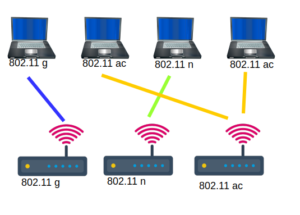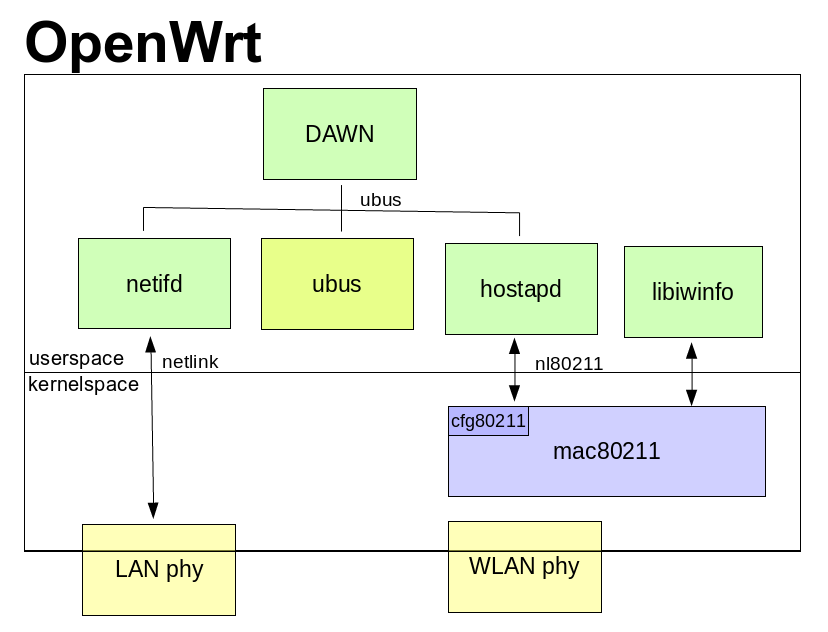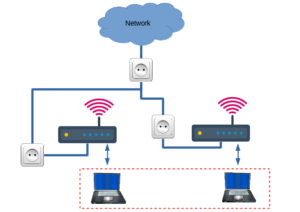Hi,
I still try to get my patches upstream.
For the libiwinfo patch I had to add the lua bindings. I never used lua so first I had to get comfortable with this. Additionally I wanted to add the channel utilization in the luci statistics app. But suddenly Luci is giving me a null pointer exception in the dev branch.
![]()
Additionally I tried to get comfortable with Luci for developing my own app.
Meanwhile another developer created nearly the same patch for iwinfo that add the survey data for the nl802.11 driver… This patch is still not accepted. The only difference is that it returns all survey data for all channels (like iw dev wlan0 survey dump)…
Furthermore, my pull request for the hostapd ubus bindings that add information about the ht and vht capabilities had to be rewritten. (https://github.com/openwrt/openwrt/pull/898). Again I have to wait for some feedback. While rewriting this patch, I had a new idea: If you subscribe to the hostapd via ubus and want to notify on the messages you have to activate it. It would be possible to add flags in the hostapd_ubus_bss to select what information should be published via the ubus bus. Before doing so, I want some feedback if this is a good idea. If somebody is interested why I am interested in the capabilities: I want to create a hearing map for every client. I’m building this hearing map using probe request messages. This probe request messages contain information like (rssi, capabilities, ht capabilities, vht capabilities, …). VHT give clients the opportunity to transfer up to 1,750 Gigabits (theoretical…) If you want to select some AP you should consider capabilities… In the normal hostapd configuration you can even set a flag that forbids 802.11b rates. If you are interested what happens if a 802.11b joins your network search for: WiFi performance anomaly. 🙂
If somebody is interested why I am interested in the capabilities: I want to create a hearing map for every client. I’m building this hearing map using probe request messages. This probe request messages contain information like (rssi, capabilities, ht capabilities, vht capabilities, …). VHT give clients the opportunity to transfer up to 1,750 Gigabits (theoretical…) If you want to select some AP you should consider capabilities… In the normal hostapd configuration you can even set a flag that forbids 802.11b rates. If you are interested what happens if a 802.11b joins your network search for: WiFi performance anomaly. 🙂
Summarizing, I spent a lot of time waiting for feedback, debugging, modifying my patches or replying on the email lists. It is a bit frustrating.
The cool stuff was that I had my first pull request. 🙂 (it was just a typo ^^) But somebody took the time to fork my project and create a pull request. 😉
Furthermore, it is exam time and I have a lot of stuff to do for the university.
Actually I wanted to go on with more interesting stuff like connecting to the netifd demo to get more information.

Or to look at PLC. There is an interesting paper EMPoWER Hybrid Networks: Exploiting Multiple Paths over Wireless and ElectRical Mediums.
